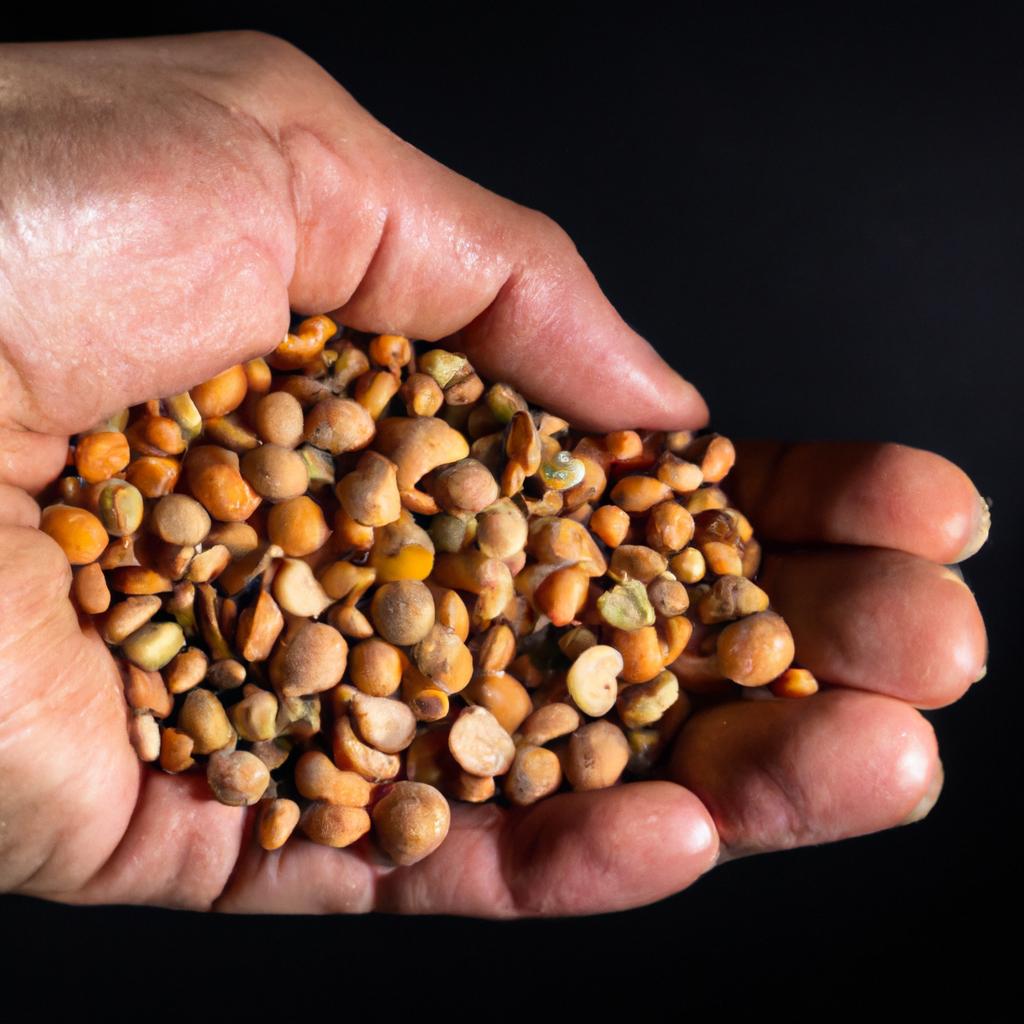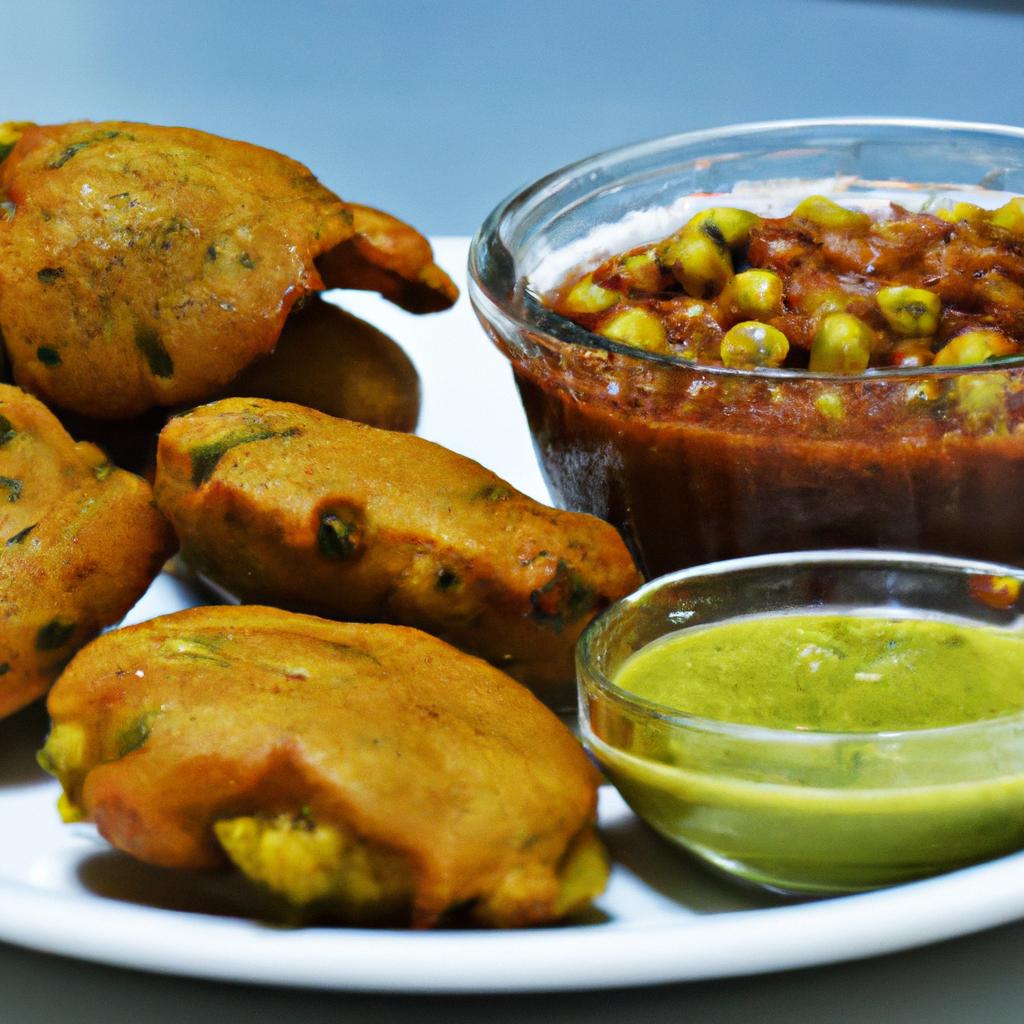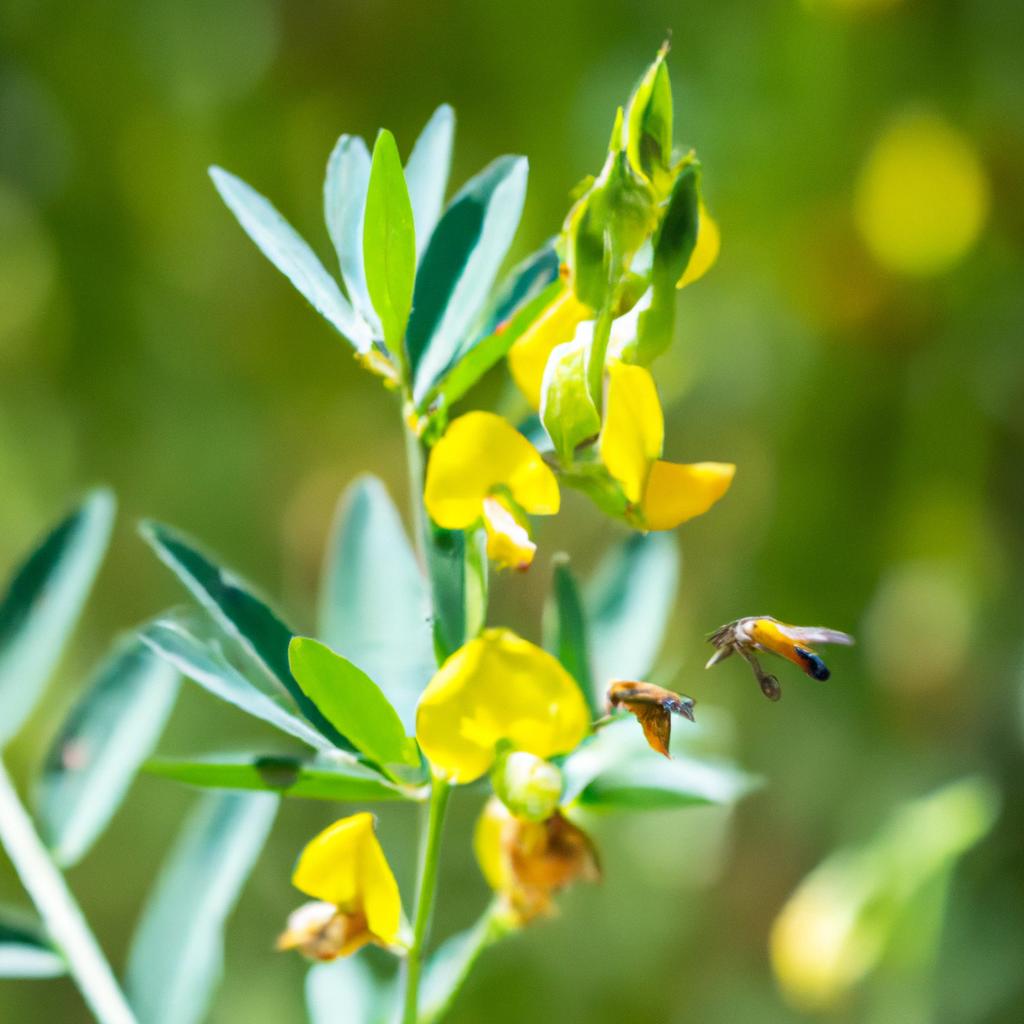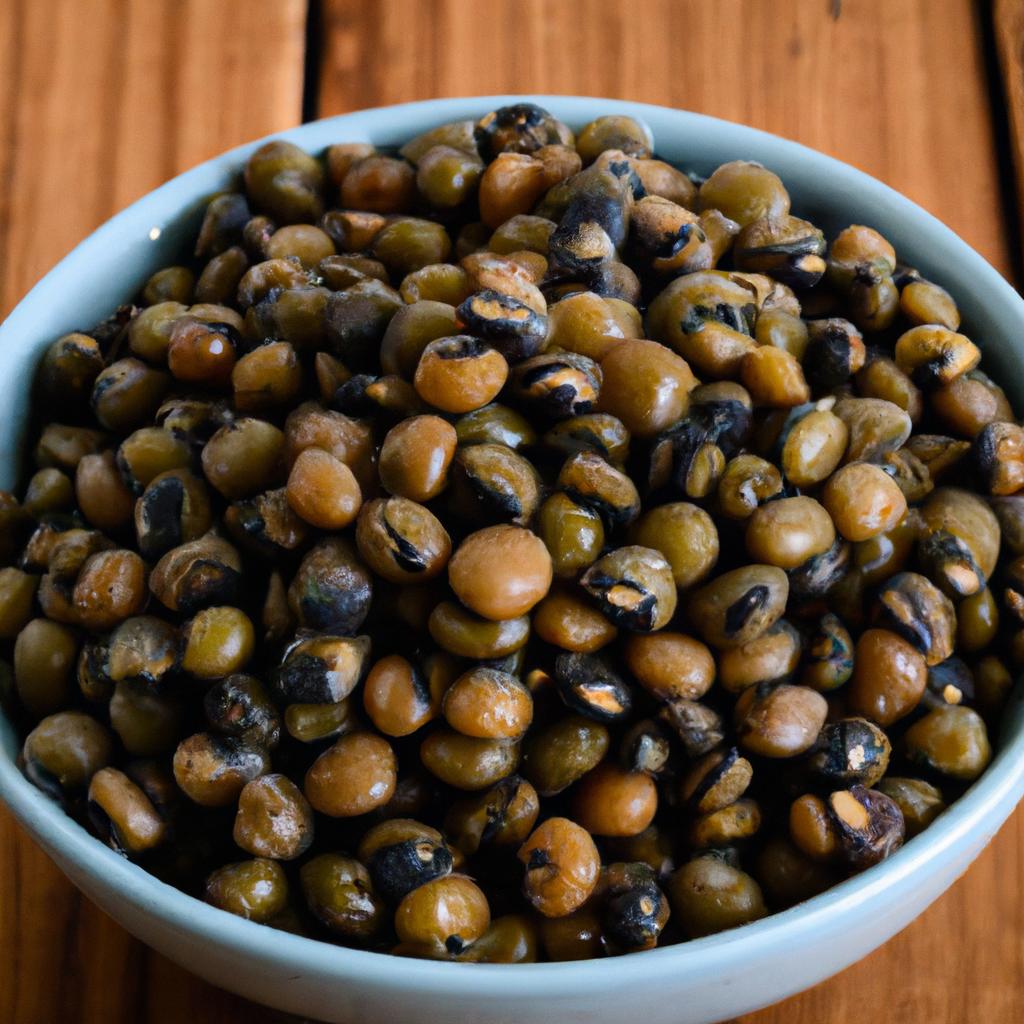Pigeon pea, also known as Cajanus cajan, is a type of legume that has been cultivated for centuries for its numerous health benefits and culinary uses. This versatile and nutrient-packed superfood has long been a staple in many cultures, providing a rich source of protein, fiber, and essential vitamins and minerals. Peasbenefits
A. Definition of Pigeon Pea

Pigeon pea is a member of the legume family, native to India and widely cultivated in tropical and subtropical regions around the world. This plant is a woody, perennial shrub that can grow up to 4 meters tall and bears long, slender pods containing small, oval-shaped seeds.
B. Brief history of Pigeon Pea

Pigeon pea has a rich history dating back over 3,500 years, with evidence of its cultivation found in ancient civilizations such as Egypt, Rome, and Greece. This legume was so highly prized that it was traded throughout the Mediterranean and Middle East, where it was used as a source of food, medicine, and even currency.
C. Importance of Pigeon Pea

Pigeon pea has played a significant role in traditional medicine for centuries, with its seeds, leaves, and roots used to treat a variety of ailments, including diabetes, high blood pressure, and digestive issues. This superfood is also a valuable source of protein, fiber, and essential vitamins and minerals, making it an excellent addition to any healthy diet. With its versatility, rich flavor, and numerous health benefits, pigeon pea is a must-try for anyone looking to improve their health and culinary skills.
Nutritional Value of Pigeon Pea
Pigeon pea is not only a flavorful and versatile ingredient, but it is also a nutrient-dense superfood that offers a wide range of macronutrients and micronutrients that promote optimal health. Let’s explore the nutritional value of pigeon pea in detail.
A. Macronutrients
Pigeon pea is an excellent source of macronutrients, which are the primary nutrients that the body needs in large quantities to function correctly.
1. Protein
Pigeon pea is a rich source of protein, containing approximately 22 grams of protein per 100 grams. Protein is essential for building and repairing tissues, and it also helps to maintain healthy bones, muscles, and skin.
2. Carbohydrates
Pigeon pea is also high in carbohydrates, which provide the body with energy. One hundred grams of pigeon pea contains approximately 63 grams of carbohydrates.
3. Fat
While pigeon pea is not a significant source of fat, it does contain essential fatty acids that are important for maintaining healthy skin, hair, and nails.
B. Micronutrients
In addition to macronutrients, pigeon pea is also a rich source of essential micronutrients, including vitamins and minerals.
1. Vitamins
Pigeon pea is an excellent source of vitamins, including vitamin A, vitamin C, and vitamin K. These vitamins play a vital role in maintaining healthy eyesight, immune function, and blood clotting.
2. Minerals
Pigeon pea is also a rich source of minerals, including iron, potassium, and magnesium. These minerals are essential for maintaining healthy bones, muscles, and heart function, as well as regulating fluid balance in the body.
Health Benefits of Pigeon Pea
Pigeon pea is a nutritional powerhouse that offers a wide range of health benefits. Let’s take a closer look at some of the ways this superfood can improve your health and wellbeing.
A. Helps in Diabetes Management
Pigeon pea contains a high amount of fiber, which helps to slow down the absorption of sugar in the bloodstream. This makes it an excellent choice for people with diabetes, as it can help to regulate blood sugar levels and prevent spikes and crashes. Additionally, pigeon pea is low in glycemic index, making it a great alternative to high-carbohydrate foods.
B. Lowers Blood Pressure
Pigeon pea is an excellent source of potassium, a mineral that plays a crucial role in regulating blood pressure. Potassium helps to balance the effects of sodium in the body, reducing the risk of hypertension and other cardiovascular diseases. Regular consumption of pigeon pea can help to keep blood pressure levels in check and improve heart health.
C. Prevents Anemia
Anemia is a common condition characterized by a deficiency of red blood cells or hemoglobin in the blood. Pigeon pea is a rich source of iron, a mineral that is essential for the production of red blood cells. Regular consumption of pigeon pea can help to prevent anemia and improve overall health and vitality.
D. Good for Digestion
Pigeon pea is an excellent source of dietary fiber, which plays a crucial role in digestive health. Fiber helps to promote regular bowel movements, prevent constipation, and reduce the risk of digestive disorders such as diverticulitis and irritable bowel syndrome. Additionally, pigeon pea contains digestive enzymes that can help to break down food and improve nutrient absorption.
E. Helps in Weight Loss
Pigeon pea is a low-fat, low-calorie food that is high in protein and fiber. This makes it an excellent choice for people looking to lose weight or maintain a healthy weight. The high fiber content of pigeon pea helps to promote feelings of fullness and reduce cravings, while the protein helps to build and repair muscle tissue. By including pigeon pea in your diet, you can support your weight loss goals and improve your overall health and wellbeing.
Culinary Uses of Pigeon Pea
Whether you are a seasoned cook or just getting started in the kitchen, pigeon pea is a versatile and delicious ingredient that can be used in a variety of dishes. From traditional stews and curries to modern salads and soups, this superfood adds a rich, nutty flavor and a healthy dose of protein and fiber to any meal.
A. Traditional Dishes
Pigeon pea has long been a staple in many traditional cuisines, particularly in India, where it is used in a variety of dishes, such as sambar, rasam, and dal. These classic recipes often feature pigeon pea as the main ingredient, combined with fragrant spices, vegetables, and herbs to create a rich, flavorful dish that is both satisfying and nutritious.
B. Modern Recipes
In recent years, pigeon pea has gained popularity in modern cuisine, with chefs and home cooks alike experimenting with new and exciting ways to incorporate this superfood into their dishes. Whether you are making a hearty veggie burger or a refreshing summer salad, pigeon pea is a versatile and delicious ingredient that can add a healthy dose of protein and fiber to any meal.
C. Snacks and Appetizers
Pigeon pea is also a great ingredient for snacks and appetizers, offering a healthy and filling alternative to traditional chips and dips. Roasted pigeon pea snacks are a popular choice in many cultures, offering a crunchy and flavorful treat that is high in protein and fiber. Pigeon pea can also be used to make delicious dips and spreads, such as hummus or bean dip, that are perfect for entertaining or snacking on the go.
Conclusion
In conclusion, pigeon pea is a nutrient-packed superfood that offers a wide range of health benefits and culinary uses. From its high protein and fiber content to its ability to manage diabetes, lower blood pressure, and aid in digestion, pigeon pea is an excellent addition to any healthy diet.
If you’re new to pigeon pea, there are many ways to incorporate it into your daily meals. Whether you’re looking for cooking tips, meal ideas, or pigeon pea products, there are plenty of options to choose from. Try adding pigeon pea to soups, stews, and curries, or experiment with new recipes that showcase its unique flavor and texture.
If you’re looking for high-quality pigeon pea products, be sure to check out peasbenefits.com. At peasbenefits.com, we offer a wide range of pigeon pea products, including dried peas, canned peas, and flour, all of which are certified organic and free from harmful chemicals and additives.
In summary, pigeon pea is a delicious and nutritious superfood that offers a range of health benefits and culinary uses. Whether you’re a seasoned chef or a beginner in the kitchen, there’s no better time to try pigeon pea and experience its many benefits for yourself.


